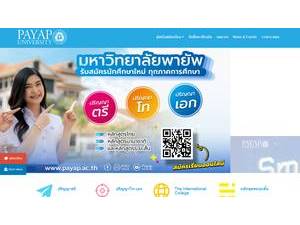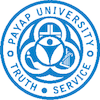
University Overview
Founded in 1974, Payap University is a non-profit private higher education institution located in the suburban setting of the small city of Chiang Mai (population range of 50,000-249,999 inhabitants). Officially recognized by the Ministry of Higher Education, Science, Research and Innovation, Payap University (PYU) is a small-sized (uniRank enrollment range: 5,000-5,999 students) coeducational Thai higher education institution officially affiliated with the Christian-Protestant religion. Payap University (PYU) offers courses and programs leading to officially recognized higher education degrees such as bachelor's degrees, master's degrees and doctorate degrees in several areas of study. See the uniRank degree levels and areas of study table below for further details. This 51-year-old Thai higher-education institution has a selective admission policy based on students' past academic records and grades. The acceptance rate range is 80-89% making this Thai higher education organization a least selective institution. International students are welcome to apply for enrollment. PYU also provides several academic and non-academic facilities and services to students including a library, housing, sports facilities, study abroad and exchange programs, as well as administrative services.
University Snapshot
Control
![]() private
private
Entity
![]() non-profit
non-profit
Size
![]() small-sized
small-sized
Selectivity
![]() least selective
least selective
University Identity
| Name (Non Latin) | มหาวิทยาลัยพายัพ |
|---|---|
| Name | Payap University |
| Name (English) | |
| Acronym | PYU |
| Founded | 1974 |
| Motto | Truth and Service |
| Colours | Light blue |
| Mascot | |
| Screenshot |  |
| Video Presentation |
University Location
| Address | Superhighway Chiang Mai-Lampang, Road, Muang Chiang Mai 50000 Chiang Mai Thailand |
|---|---|
| Location Map and Satellite View | |
| (53) 851 478 | |
| (53) 245 353 | |
| Other locations |





Social Media
Official Social Media Channels
Payap University's Facebook page review
Payap University's X page review
Payap University's Youtube page review
Payap University's Instagram page review
Payap University's official LinkedIn profile
Payap University's official TikTok channel
Related Guide Articles
Social media can be a powerful tool for Universities to communicate with current students, alumni, faculty, staff and the wider community. But how can social media be important for prospective students? Read our article about the importance of Social Media for universities and prospective students to learn more.